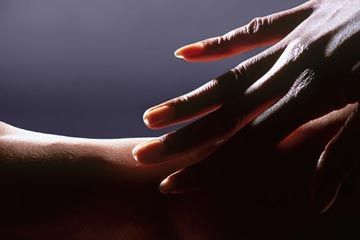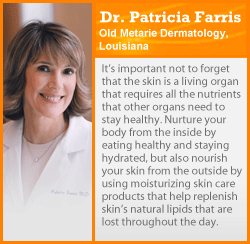Your skin is your largest organ and a crucial part of several bodily functions. Not only is it the flexible, self-healing barrier that supports the immune system, but it's also part of the integumentary system, the network of dead epidermal cells --hair, fingernails and toenails -- that helps slough off cellular waste material. Sweat glands in the skin also play active roles in the excretory system, or the organs and glands that flush out toxins and excess minerals from the body.
Dead skin cells are a form of bodily waste that facilitates the growth of new epidermal cells. Every minute, you lose 30,000 to 40,000 dead skin cells, all of which are replaced immediately by fresh skin tissue [source: KidsHealth.org]. The body does an excellent job of sloughing off skin cells through normal activity, but regular bathing is definitely a plus.
Advertisement
You don't need to exfoliate, or remove dead skin cells with special cleansers or washcloths, to get rid of dead skin waste, but beauty experts believe you should for a healthier complexion. However, dermatologists warn against overexfoliation, which can leave skin raw, red and vulnerable to bacteria [source: Flamberg].
Sweating is another way that skin helps remove waste from the body, but it's not as effective as sauna lovers might think. The chief role of sweat is thermoregulation, cooling us off when exercise or high temperatures cause our internal mercury to rise. The negligible detoxifying benefits of sweat are simply a side effect of this cooling process [source: Woolston].
Most of us come with two types of sweat glands: eccrine glands and apocrine glands. Eccrine glands cover the majority of your body and are responsible for the cooling effect of sweating [source: Mayo Clinic]. Eccrine sweat is almost entirely water with a little salt and potassium, but it also contains trace amounts of ammonia, uric acid and urea -- all waste byproducts of the body's metabolism of nitrogen [source: Huang, et al.].
Since sweat is associated with body odor, you might think that that foul stench has something to do with the toxins and bodily waste flushed out by sweating. But that's not the case. The liver and kidneys -- with help from the rest of the urinary system and digestive system -- do 99 percent of the heavy lifting when it comes to ridding the body of waste, toxic or otherwise [source: Woolston]. Only tiny amounts of toxins and waste products, like the ammonia and urea mentioned above, are found in sweat.
Sweat itself has no odor. The smelly effect is the fault of apocrine glands located in the groin, armpits and other hairy body parts. These glands produce sweat that's rich with fatty proteins. Apocrine sweat is still odorless, but bacteria colonies in these warm, moist areas metabolize the proteins, creating that famously foul smell.
For lots more helpful dermatological facts and skin care tips, see the links on the next page.
Advertisement


